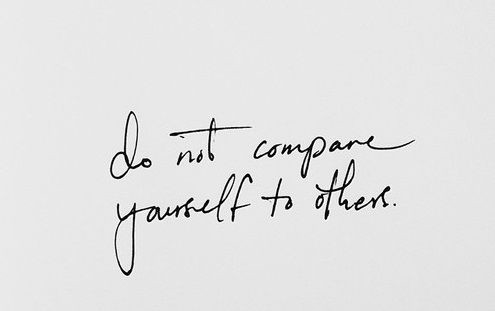The following fitness tips will help women of all ages lose weight and live healthier lifestyles. Everyone’s body responds differently to different types of exercise, so it’s important to research the type of workout that works best for you before jumping into it. Even if you don’t have time to do any physical activity during the day, remember that losing weight doesn’t require extra time; simply moving more throughout your day can burn enough calories to make the difference between gaining and losing weight. Get started by reading these 10 fitness tips for women today!
1) Stretch
Stretch before you exercise. Stretching improves your blood flow and makes you less likely to injure yourself during a workout. It also improves your range of motion, allowing you more flexibility in how you perform various exercises. Stretch at least five minutes before starting an intense fitness routine. This will warm up your muscles and allow them to perform better during your workout. You should also stretch regularly throughout any fitness regimen because stretching post-workout helps prevent soreness and injury as well. Be sure to hold each stretch for 10 seconds. That's enough time to increase your circulation but not so long that it feels like work. Also, be sure to breathe deeply while stretching; holding your breath can cause muscle cramps or pain.
2) Find What You Enjoy Doing
One of the most common reasons women quit working out is that they can’t stick with it. The more you enjoy a workout, however, the easier it will be to stay motivated. If you think walking is boring, take up kickboxing; if running makes your knees hurt, try swimming or cycling instead. If you really have trouble staying motivated with one form of exercise, stick with it for at least 30 days before trying something else—then you can evaluate whether or not it's enjoyable. It's also important to remember that losing weight isn't about physical appearance alone; there are mental and emotional benefits as well.
3) Exercise in the Morning
Many of us lead busy lives, which makes getting a good night’s sleep all too rare. One easy way to work around that is by switching your workout time from evening to morning. Studies have shown that exercise in the morning can help you get a better night’s rest than if you exercise at night. Why? Morning workouts cause less fatigue and boost your energy levels, so you feel more rested and ready for a good night’s sleep. Plus, it helps you start your day off right—an exercise in the morning has been linked to lower stress levels and an overall healthier lifestyle. If you need some motivation to wake up early and hit the gym before work, try setting an alarm on your phone or downloading a fitness app that offers rewards for meeting certain goals (like 10 push-ups or 30 minutes of running). Remember: It’s not always about burning calories—sometimes it’s just about moving!
4) Have a Plan B if Something Goes Wrong
No matter how much you plan and prepare, things don’t always go according to plan. If a fitness tip doesn’t work out—or if you can’t complete a workout due to illness or injury—it's important that you have a Plan B in place. When people first start, there is so much excitement, says Armento. But after two weeks, they're like 'What am I doing here? This isn't helping me.' The body can't sustain such intensity. Have at least three alternative exercise options on hand that you know work and are comfortable with, so if one way of working out isn't cutting it for you (physically or mentally), you'll be able to move on and try something else.
5) Eat Healthy Food Before Going to Gym
Make sure that you have eaten healthy food and not junk. Avoid fried foods and oily foods as these hinder your workout by making you feel bloated. Eat a balanced meal an hour before going to the gym. It will help you perform better and also lose weight faster. Include protein sources like eggs, chicken, fish, or other non-vegetarian food in your diet as it helps build muscle mass which increases endurance. Eating 5 small meals a day rather than 3 large ones keeps your metabolism high throughout the day, aiding in losing weight faster. It also curbs hunger pangs and makes sure that no binge eating takes place resulting in better loss of fat.
6) Drink Water Before, During, and After Training
If you’re feeling thirsty during your workout, it’s a sign that you need more water. Our bodies can become dehydrated without us even realizing it. When exercising, focus on getting in at least 16 ounces of water before your workout. During your workout, aim for eight to 10 additional ounces every 20 minutes (if not more). After training, be sure to drink another 16 ounces or so within 30 minutes of finishing. Consuming proper amounts of water is key when trying to lose weight safely because drinking adequate fluids helps maintain body temperature and keep you hydrated during exercise, which in turn increases how much energy you expend while working out and makes it easier for muscles to recover after workouts.
7) Listen to Music While Exercising
It might seem like listening to music during exercise takes away from it, but a 2014 study shows that people who listened to fast-paced music burned 70% more calories than those who worked out in silence. The reason? It seems that your body pays less attention to what's going on around you when there's a catchy tune playing and more focus is placed on getting through your workout. In fact, one study found that people listening to music while doing cardio burned 13% more calories per minute than those without headphones. That's an extra 45 minutes of running (or whatever activity you prefer) each week!
8) Don’t Compare Yourself With Others
When you compare yourself with others, you’re ignoring how your body is unique and doesn’t follow a standard formula. Everyone has different genetics, which means everyone will lose weight at a different rate. While some people can burn calories quickly with intense exercise, others will take longer. This doesn’t mean one person is working harder than another—they just have bodies that process calories differently. It’s also important to keep in mind that even if someone loses weight at a quick pace, they may be smaller than you and weigh less due to having less muscle or water weight compared to you. You might have lost inches or pounds more than them but weigh less!
9) Avoid Junk Food Like the Plague
Do you know what’s in your local grocery store’s frozen section? Your freezer case of Lean Cuisine, Stouffer’s, Healthy Choice, and Weight Watchers entrees is full of sodium-filled meals. While they’re marketed as healthy options, they usually aren’t. A typical frozen meal will typically have between 1,000 – 1,400 milligrams of sodium in one serving — that's half your daily allowance! You don't need these kinds of ingredients in your diet if you're trying to lose weight. Instead, choose fresh foods over processed ones whenever possible.
10) Get Good Sleep
Regular sleep is essential when you’re trying to lose weight. Studies show that people who are sleep-deprived tend to be heavier than those who get a good night’s rest. Sleep deprivation is linked with high levels of ghrelin, a hormone that stimulates appetite, and low levels of leptin, which prompts fullness. This helps explain why staying up late may make it harder for you to keep your eating in check. Getting enough sleep is one of many ways—of which nutrition is just one—to help maintain a healthy weight and prevent heart disease, diabetes, or stroke.














0 Comments